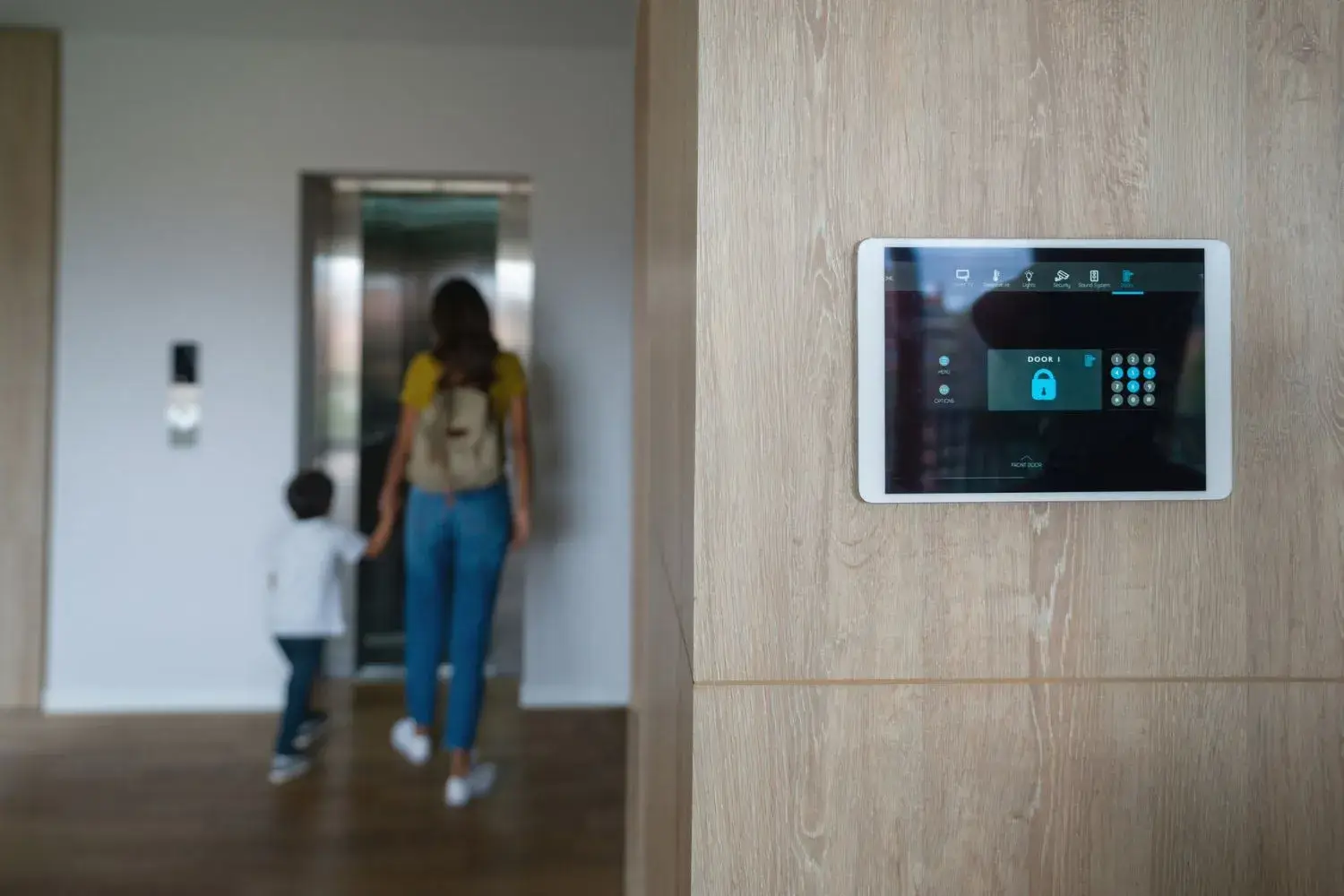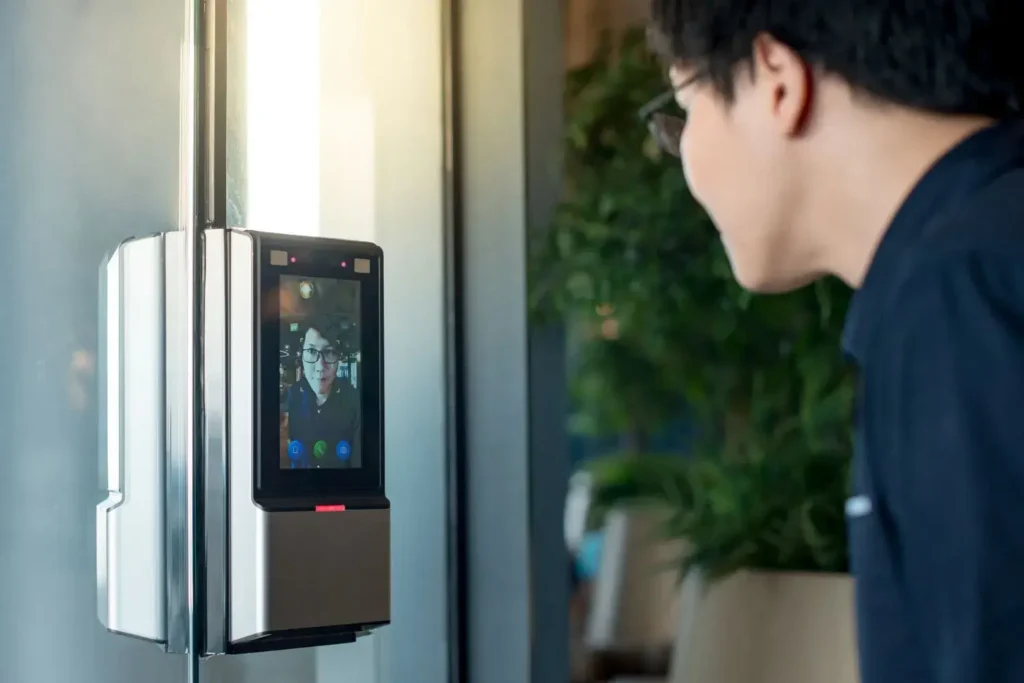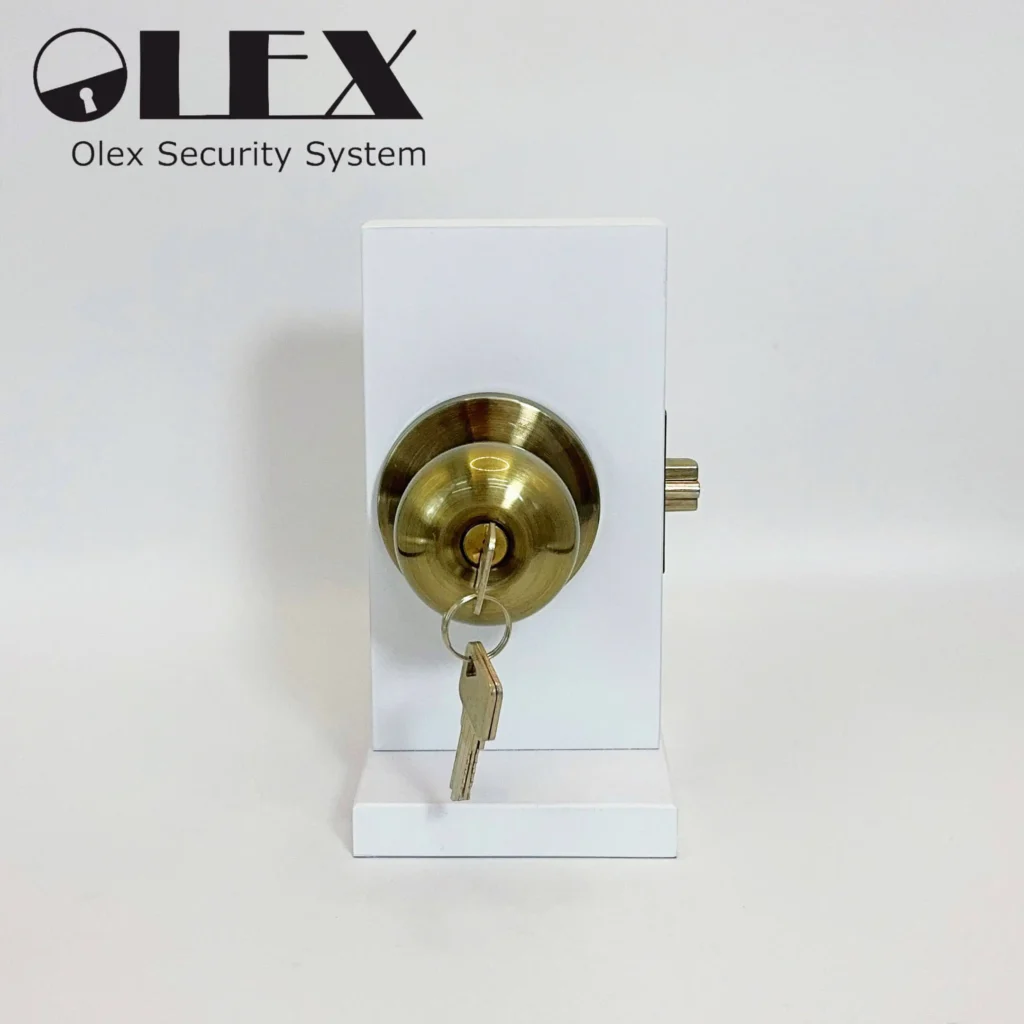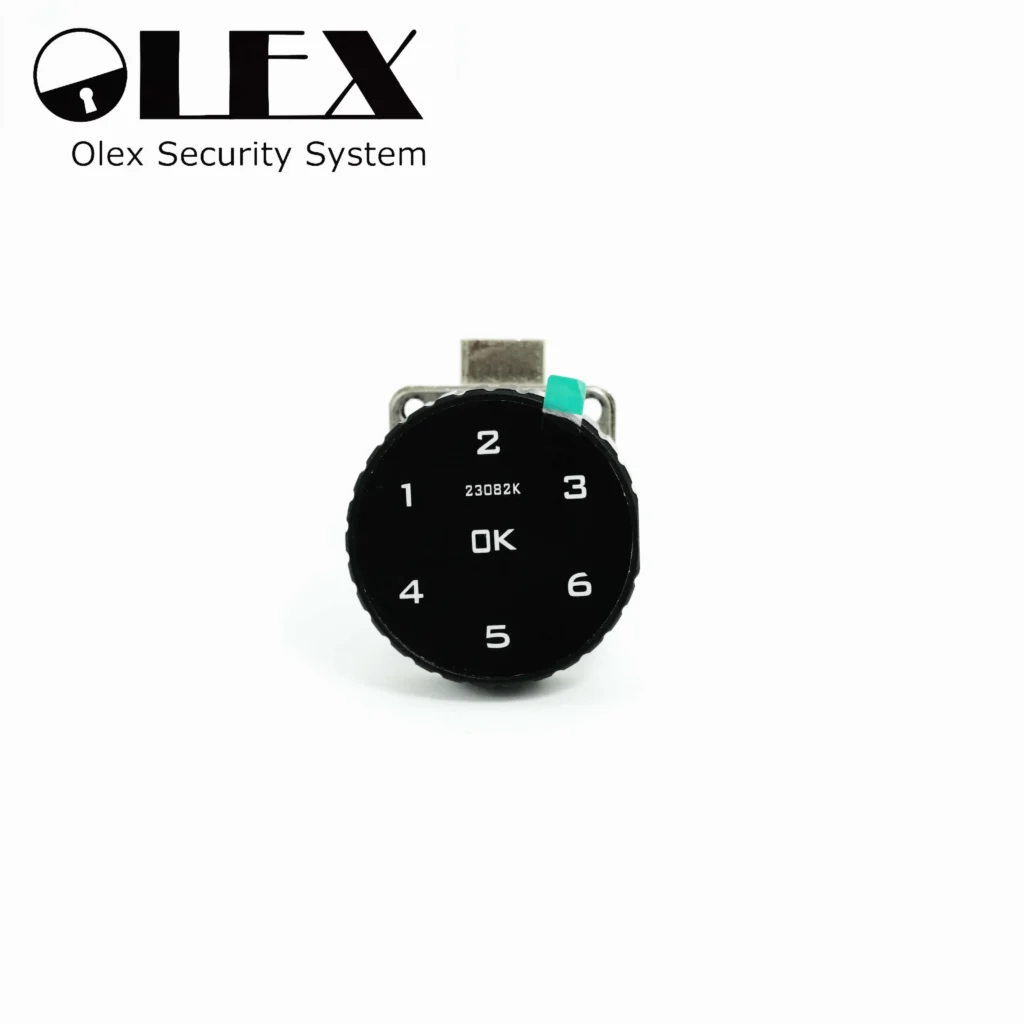7 Powerful Smart Door Locks to Elevate Your Home Security in 2024
Smart door locks have revolutionized home security, offering a blend of convenience and advanced technology. If you’re considering upgrading your traditional door lock to a smart lock but are unsure where to start, this guide is for you. We’ll explore everything you need to know about smart locks, including how they work, the different types available, and how to choose the best one for your home.
Introduction
In an era where technology is seamlessly integrating into our daily lives, home security has not been left behind. Smart door locks are becoming an essential component of modern homes, providing enhanced security features and unprecedented convenience. No more fumbling for keys or worrying about lost copies; smart locks allow you to control access to your home with ease.

Understanding Smart Door Locks
What Is a Smart door Lock?
A smart door lock is an electromechanical lock designed to execute locking and unlocking operations on a door when it receives instructions from an authorized device using a wireless protocol and a cryptographic key. In simpler terms, it’s a door lock that you can control using your smartphone, a keypad, or even your fingerprint.
How Do Smart door Locks Work?
Smart door locks replace or augment your existing deadbolt, connecting to your home Wi-Fi network or Bluetooth to communicate with your smartphone or other devices. This connectivity allows you to lock or unlock your door remotely, grant temporary access to guests, and receive notifications about who is entering or leaving your home.

Types of Smart Door Locks
Understanding the different types of smart door locks available is crucial in making an informed decision. Here’s a breakdown of the most common types:
1. Keypad Locks
Long-Tail Keyword: The Pros and Cons of Password Locks vs. Traditional Locks
Keypad locks use a numeric keypad where you enter a passcode to unlock the door. They eliminate the need for physical keys and are relatively straightforward to install.
- Pros:
- No need for keys.
- Easy to assign unique codes to different users.
- Affordable.
- Cons:
- Passcodes can be shared without permission.
- Keypads may wear out over time.
2. Fingerprint Locks
Long-Tail Keyword: Top 10 Fingerprint Door Locks for Enhanced Security
Fingerprint or biometric locks use your unique fingerprint to grant access. They offer high security since fingerprints are nearly impossible to duplicate.
- Pros:
- High security.
- Quick access.
- Cons:
- More expensive.
- May have issues recognizing fingerprints if the sensor is dirty.
3. Bluetooth Locks
These smart door locks connect to your smartphone via Bluetooth. When you are within a certain range, the lock recognizes your device and unlocks the door.
- Pros:
- Hands-free convenience.
- Good for users who carry their phones everywhere.
- Cons:
- Limited range.
- Potential battery drain on your smartphone.
4. Wi-Fi Enabled Locks
Long-Tail Keyword: Smart Door Lock Installation Guide: Upgrade Your Door Security
Wi-Fi locks connect to your home network, allowing you to control the lock from anywhere with an internet connection.
- Pros:
- Remote access.
- Real-time notifications.
- Cons:
- Can be more vulnerable to hacking.
- May require a strong Wi-Fi signal.
Smart Door Lock vs. Traditional Lock: Which One Should You Choose?
Long-Tail Keyword: Smart Lock vs. Traditional Lock: Which One Should You Choose?
Security Features
- Smart Locks: Offer advanced security features like encryption, tamper alerts, and the ability to monitor access logs.
- Traditional Locks: Rely solely on mechanical components, which can be picked or bumped.
Convenience and Accessibility
- Smart Locks: Provide keyless entry options, remote access, and easy management of multiple users.
- Traditional Locks: Require physical keys, which can be lost or duplicated without your knowledge.
Cost Analysis
- Smart Locks: Higher upfront cost but may offer savings in terms of not needing to rekey locks or make duplicate keys.
- Traditional Locks: Less expensive initially but may incur additional costs over time for maintenance and key replacement.
Scenarios for Each
- Smart Locks: Ideal for tech-savvy users, rental properties, or homes with frequent visitors.
- Traditional Locks: Suitable for those who prefer simplicity and have no need for advanced features.

How to Choose the Best Smart Lock
Long-Tail Keyword: How to Choose the Best Smart Door Lock for Your Home
When selecting a smart lock, consider the following factors:
1. Security Features
Look for locks with strong encryption and authentication methods. Features like two-factor authentication add an extra layer of security.
2. Compatibility
Ensure the smart lock is compatible with your door type and existing deadbolt. Also, check if it integrates well with your smart home ecosystem, be it Amazon Alexa, Google Home, or Apple HomeKit.
3. Access Methods
Choose a lock that offers multiple access methods suitable for your lifestyle. Options include keypad codes, fingerprint recognition, smartphone apps, and even traditional keys as a backup.
4. Ease of Installation
Some smart locks are easy to install yourself, while others may require professional installation. Consider your DIY skills and whether you’re comfortable installing the lock yourself.
5. Battery Life
Smart locks are battery-powered. Check reviews for battery life and whether the lock provides low-battery alerts.
6. Brand Reputation and Reviews
Opt for reputable brands with positive customer feedback. Brands like Schlage, August, and Yale are well-known for quality smart locks.
7. Budget Considerations
Smart locks can range from $100 to over $500. Determine your budget beforehand and weigh the features you need against the cost.
Top 5 Smart Locks for Enhanced Security
Long-Tail Keyword: Top 10 Fingerprint Door Locks for Enhanced Security
While a top 10 list is extensive, here are five highly-rated smart locks to consider:
1. August Wi-Fi Smart Lock
- Features: Easy installation, remote access, works with Alexa and Google Assistant.
- Pros: Compact design, excellent app interface.
- Cons: Higher price point.
2. Schlage Encode Smart Wi-Fi Deadbolt
- Features: Built-in Wi-Fi, touchscreen keypad, voice control.
- Pros: Robust security features, easy to use.
- Cons: Bulky design.
3. Yale Assure Lock SL
- Features: Key-free touchscreen deadbolt, Wi-Fi and Bluetooth enabled.
- Pros: Sleek design, optional physical key.
- Cons: Additional module required for Wi-Fi connectivity.
4. Ultraloq U-Bolt Pro
- Features: 6-in-1 keyless entry, including fingerprint and keypad.
- Pros: Multiple access methods, affordable.
- Cons: Setup can be complicated.
5. Nest x Yale Lock
- Features: Tamper-proof, integrates with Nest ecosystem.
- Pros: Seamless integration with other Nest products.
- Cons: Requires Nest Connect for remote features.
Installation Guide
Long-Tail Keyword: DIY Guide: Installing a Fingerprint Door Lock
While professional installation ensures everything works correctly, many smart locks are designed for easy DIY installation.
Tools Needed
- Screwdriver
- Drill (if new holes are required)
- Measuring tape
Steps
- Remove Existing Lock: Unscrew and remove the old deadbolt.
- Install the New Deadbolt: Follow the manufacturer’s instructions to install the smart lock’s deadbolt.
- Attach the Exterior Assembly: Place the exterior part of the lock on the door.
- Attach the Interior Assembly: Connect the interior component, ensuring all cables are connected.
- Secure the Lock: Tighten all screws securely.
- Set Up the App: Download the lock’s app and follow the setup instructions.
- Test the Lock: Make sure all access methods work correctly.
Tips
- Read the Manual: Each lock is different; always refer to the manufacturer’s instructions.
- Check Alignment: Ensure the lock and strike plate are properly aligned to prevent jamming.
- Keep Firmware Updated: Regular updates can fix bugs and improve security.
Maintenance and Troubleshooting
Common Issues
- Battery Failure: Keep spare batteries and replace them as needed.
- Connectivity Problems: Ensure your Wi-Fi or Bluetooth connections are stable.
- Mechanical Jams: Regularly clean and lubricate the mechanical parts.
Solutions
- Regular Updates: Keep the lock’s software up to date.
- Customer Support: Don’t hesitate to contact the manufacturer for persistent issues.
Conclusion
Smart locks offer a modern solution to home security, combining convenience with advanced features. By understanding the different types available and considering your specific needs, you can choose the best smart door lock for your home.
Call to Action
Ready to upgrade your home security with a smart lock? Explore our wide range of smart locks here and take the first step toward a safer, smarter home today!


